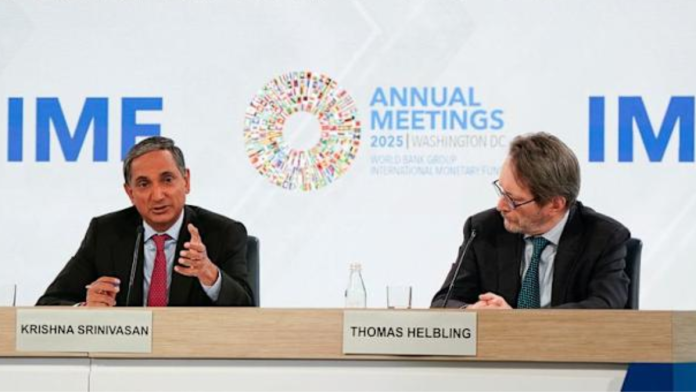The International Monetary Fund (IMF) has issued an urgent call for Asian countries to reduce trade barriers and strengthen regional trade. This comes as a move to protect Asia from the negative effects of U.S. tariffs and global financial shocks. The recommendation was part of the IMF’s latest regional economic outlook report for Asia, which highlights how interconnected the region’s economies have become.
Asia’s dependence on global trade
Trade has been a key factor in Asia’s rapid growth. China, in particular, acts as the main hub for producing goods that are sold worldwide. Many Asian countries rely on these supply chains for their exports. This heavy dependence on global trade makes the region highly sensitive to international tensions. Any trade dispute, especially between the U.S. and China, can disrupt supply chains and affect businesses and consumers across Asia. The IMF emphasised that lowering trade barriers within Asia and encouraging regional trade could provide a stronger shield against such shocks.
Rising intra-regional trade and AI investment
Recent developments show that trade between Asian countries is increasing steadily. One reason is the ongoing trade friction with the U.S., which has prompted nations to explore alternative markets within the region. By strengthening trade ties with neighbours, countries can reduce the risks associated with external conflicts and tariffs.
Three Indian companies unexpectedly targeted in EU’s 19th sanctions on Russia
At the same time, the investment boom in artificial intelligence (AI) is creating new business opportunities across Asia. AI technologies are helping manufacturers improve productivity and efficiency, while also opening up new avenues in sectors such as healthcare, finance, and logistics. This technological progress is making regional trade more resilient and providing a platform for countries to adapt to global economic changes.
Removing trade barriers for better integration
The IMF report stressed that deeper regional trade integration can serve as a buffer against economic shocks. By trading more with each other, Asian countries can diversify export markets, reduce operational costs, and lessen the impact of external challenges like U.S. tariffs. Non-tariff barriers, such as complex customs procedures, restrictive regulations, and other trade restrictions, were highlighted as areas that need urgent reform to encourage smoother trade flows.
China blocks business with 5 U.S. subsidiaries of Hanwha Ocean in trade dispute
Recommendations for structural reforms
Alongside trade integration, the IMF urged Asian countries to implement structural reforms to strengthen their economies. One key recommendation is improving the services sector, which is becoming increasingly important for economic growth. A strong services sector can create more jobs and balance the region’s reliance on manufacturing and exports.
The IMF also highlighted the need to reduce incentives that lead to poor allocation of capital. Ensuring that investments go to productive and high-growth sectors rather than being wasted is essential for long-term stability. Addressing the challenges posed by an aging population is another priority. Many Asian countries are seeing demographic shifts that could strain social support systems and slow down economic growth if not managed effectively.
The IMF report also revised its growth forecast for Asia, indicating a slightly higher growth rate in 2025 than previously predicted. While a slowdown is expected in 2026, immediate attention on trade facilitation and regional integration can help countries navigate uncertainties. The IMF emphasized that collaboration among Asian nations, removal of trade obstacles, and strategic reforms are vital for maintaining economic stability and resilience.
The message from the IMF is clear: Asia’s future growth and economic strength depend on open trade and closer regional cooperation. By eliminating trade barriers, embracing innovation, and implementing reforms, Asian countries can protect their economies from global shocks and continue to thrive in an increasingly competitive world market.


